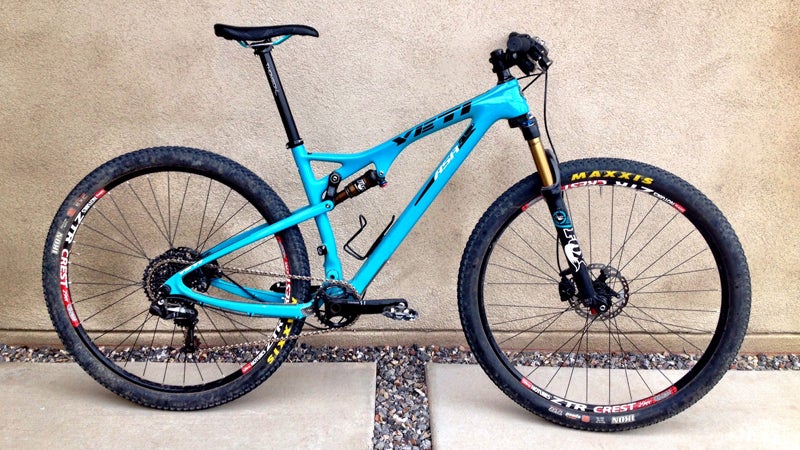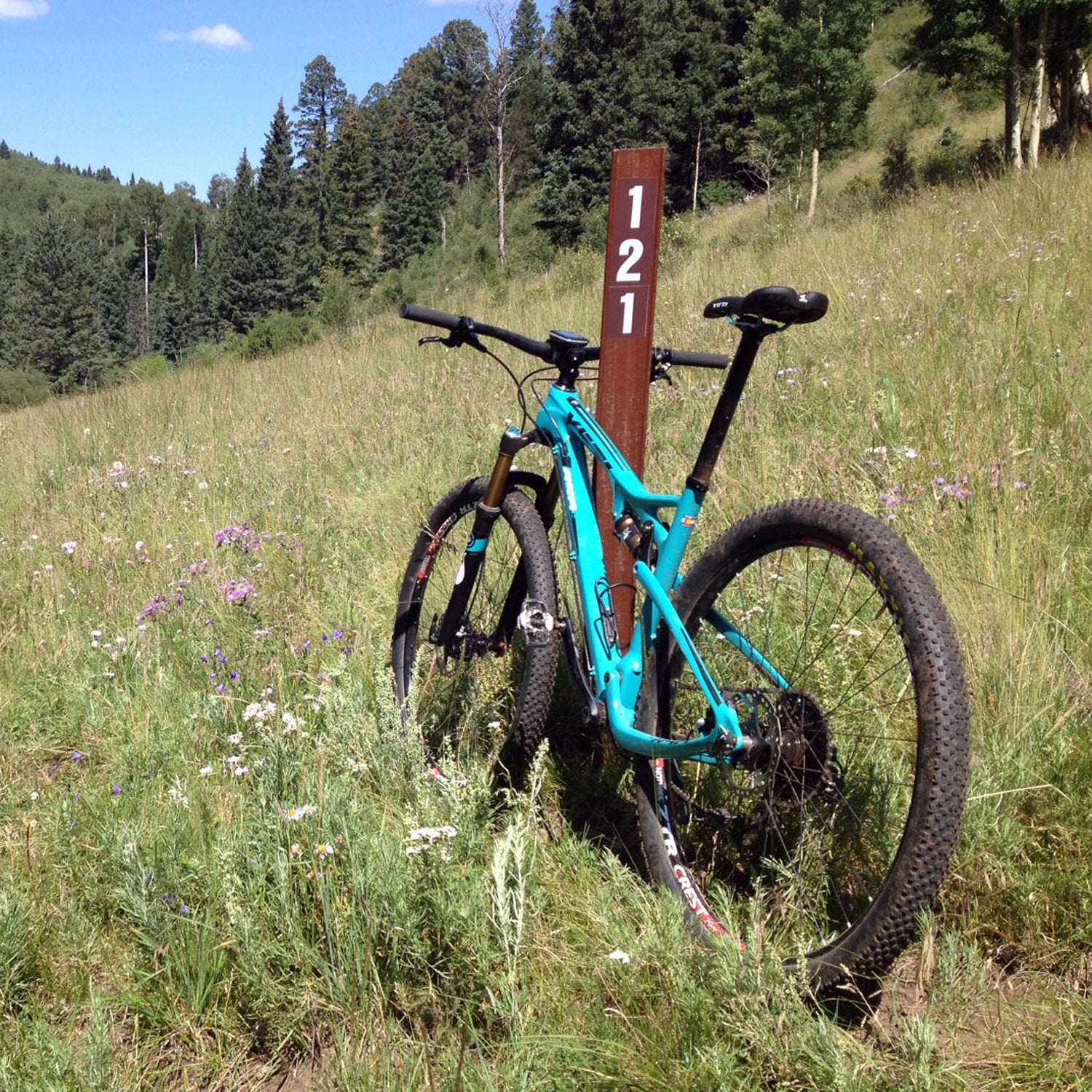After a hiatus from the full-suspension cross-country bike market, Yeti has released a fully revised race bike, the .
But as we’ve come to expect from the Golden, Colorado-based bike manufacturer, the new model is not just another cookie-cutter XC machine. With a slack 69.1-degree head tube and a five-inch front end paired to a four-inch rear, this 29er finds a nice medium between XC and trail ride.
It’s not entirely accurate to call the ASR C a 29er either. The three largest models (medium, large, and extra large) are built around bigger hoops, but the size small and extra small frames use 27.5-inch wheels. While 29ers generally rule the terrain in the XC category, Yeti decided that it wanted to give smaller riders a more comfortable, agile ride; hence, the smaller wheels.
We received a size medium a few weeks prior to the bike’s official release, and we were immediately taken with the ASR C’s clean-looking linkage, swoopy shaped carbon tubing, and kicked-back-feeling ride position. Our bike came equipped with the lowest-end build, which is still an excellent spec: Kashima coated Fox Float CTD shock and fork, SRAM XO1 1×11 drivetrain, Shimano XT brakes, Stan’s Crest wheels, Maxxis Ikon tires, and a mix of Thomson and Easton carbon cockpit bits and pieces.

As always with Yeti spec choice, there’s nothing on this bike not to like. It weighs just 23.1 pounds—the more expensive builds lop a pound off that—which makes this competitive with pretty much every other XC bike on the market. It isn’t cheap at $5,800, but that price is also right in line with comparable bikes.
We’ve spent three straight weekends pedaling the ASR C and have logged some 150 miles on singletrack in New Mexico and Colorado. And though it’s taken a little time, the bike is growing on us.
It is an extremely firm suspension design, race-tuned like a sports car. The CTD function in the rear doesn’t seem to change the feel of the bike much, which is fine by us, really, because we prefer a bike you can put into trail or descend mode and leave it there without a lot of fuss.
The bike climbs just fine and feels quick on long ascents (we’ve knocked down a few Strava KOMs so far) but also nimble on uphill rocks and tech. It basically ascends as well as any other XC bike we’ve tried, though of course dropping a pound with the pricier spec would make it that much better.
Downhill is where the bike really shows its personality. Unlike other XC racers, which generally have head tubes a couple degrees steeper, the ASR C feels stable at speed and less twitchy in rougher terrain. It descends more like a five-inch trail bike than a race machine, which is a good thing.
The only drawback is that, because it’s only four inches in the rear, we found the bike feeling a little rugged and underpowered on rough terrain. We’ve combatted that with a softer tune on the rear shock, which surprisingly hasn’t affected the pedaling efficiency much. Still, the ASR C is a bit like the mythological Chimera, with the front half of a trail bike fused to a XC rear end. That’s not a bad thing: It just takes a bit of getting used to.
Coming straight on the heels of the release of the Switch Infinity suspension design a few weeks ago, the ASR C helps complete Yeti’s line of bikes. And judging by our ride tests so far, the company continues to carve out an interesting niche and personality with a stable of bikes for the harder-riding, trail-oriented crowd.


